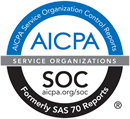Hello Everyone,
Which Linux operating system is best for VPS?
Thanks.
Choosing the Right Linux OS
Re: Choosing the Right Linux OS
It is important that we take a look at all of the different options that are available ad get to know the advantages and disadvantages of each Linux OS before making our VPS OS. We will list the most popular options here.
CentOS VPS
CentOS is a Linux distribution that is primarily at no cost and community supported. This OS is centered on Red Hat Enterprise Linux. A CentOS VPS offers enterprise excellence software for free, enabling users to experience top quality VPS services at economical. Users will just have to pay for their hosting plans.
The CentOS operating system has many advantages over other Linux VPS operating systems. For one, the CentOS operating system is one hundred percent open. Second, we can make contact with developers to report bugs and discuss various problems with them that we are having and need help with, and they will always reply to us. We also have a large user community to consult with, in case we may be jammed on various things or just want to see what things we can do with this OS. In addition, we have a excess of support options that are available to us that we can utilize for free.
Red Hat (RHEL)
Red Hat Enterprise Linux (RHEL) is fully stable and performs very healthy. As a matter of fact, it is more stable and performs better than Windows OS. A Red Hat Linux VPS provides support for a extensive collection of applications, and it also supports a number of hypervisors, hardware architectures, and clouds. The latest version, Red Hat 6, offers greater flexibility than past versions. Version 6 also allows for users to have a greater amount of control over their VPS. A large number of businesses confidences in Red Hat for the fact that this is a very consistent VPS.
While there are a number of benefits of using Red Hat, there are some disadvantages. For one, it seems difficult to locate a lot of information, and there is a charge for using it. We have to obtain a subscription either from Red Hat themselves or from one of their sellers.
Debian VPS
Debian VPS is another free open source platform that is of top quality, designed by the GNU Project. This particular Linux VPS software is very flexible, it will enable us to have full control over our environment, and it is very simple to set up and configure. In addition, Debian enables us to have high quantities of traffic on our servers without compromising our performance in the least bit. We can host a large number of websites and do a number of tasks without causing difficulty with load times. If we are developers, we will love Debian in this VPS allows for best flexibility in that we can develop a number of applications to customize our VPS environment.
Debian Linux is also supported by outstanding support. We can find a whole lot of free support via IRC, user lists, and forums, and we can even talk with the developers themselves. And last but not least, it is ideally suited for a VPS Hosting environment.
Fedora
Fedora is another very powerful, free Linux distribution that is well-liked among many developers. Developers love how it is very simple to navigate and set up. Like most open source software, the user community plays a very vital role. Developers can discuss matters with one another, and they can work together to get solutions to problems. Developers can also help one another to learn new things about Fedora. This comes helpful for users who are at the beginner and intermediate levels.
There are several benefits to using Fedora. For one, Fedora is extremely flexible. Fedora has a set of tools that enables developers to create their own versions of the OS and distribute them to others. These tools allow for creativity to be demonstrated. Second, Fedora is one hundred percent secure. And unlike Ubuntu, Fedora has a firewall that works right out of the box and is very easy to configure.
OpenSUSE
OpenSUSE, also free and open source, is a very stable and secure Linux OS. The newest release come objects packed with features, offering a whole host of tools to developers that enable them to modify their experiences. While this particular OS is excellent for VPS hosting, we may discover that we will have a difficult time finding support info on the web. Information is not as readily available as with some other Linux distributions. We’ll need to go straight to the openSUSE Project for most of what we require to know. We will also need to consult the project to obtain a release, should we desire to utilize it. Of course, we can buy a hosting plan that contains this OS from a variety of different companies.
Ubuntu
Ubuntu is free and open sourced, and it is vastly accepted among developers. Ubuntu is very simple and easy to use, as it takes little effort to configure. In addition, we will have no difficulty finding tons of information about Ubuntu due to its extensive popularity as a Desktop OS. We can find whatever we need to know in just minutes by doing a simple search online.
While Ubuntu has huge popularity and is extremely well liked, there is one small disadvantage to using this OS for a VPS server. Security features, like the firewall, are not available in the beginning. You may need to install and fully configure them to insure that your VPS is entirely protected. And although it is optimized for your desktop, it may not be perfectly suited for a hosting environment.
With all this information in hand, We will now be able to make an informed decision as to how we will set up your virtual private server and modify your experience to fit our needs and run our business successfully.
CentOS VPS
CentOS is a Linux distribution that is primarily at no cost and community supported. This OS is centered on Red Hat Enterprise Linux. A CentOS VPS offers enterprise excellence software for free, enabling users to experience top quality VPS services at economical. Users will just have to pay for their hosting plans.
The CentOS operating system has many advantages over other Linux VPS operating systems. For one, the CentOS operating system is one hundred percent open. Second, we can make contact with developers to report bugs and discuss various problems with them that we are having and need help with, and they will always reply to us. We also have a large user community to consult with, in case we may be jammed on various things or just want to see what things we can do with this OS. In addition, we have a excess of support options that are available to us that we can utilize for free.
Red Hat (RHEL)
Red Hat Enterprise Linux (RHEL) is fully stable and performs very healthy. As a matter of fact, it is more stable and performs better than Windows OS. A Red Hat Linux VPS provides support for a extensive collection of applications, and it also supports a number of hypervisors, hardware architectures, and clouds. The latest version, Red Hat 6, offers greater flexibility than past versions. Version 6 also allows for users to have a greater amount of control over their VPS. A large number of businesses confidences in Red Hat for the fact that this is a very consistent VPS.
While there are a number of benefits of using Red Hat, there are some disadvantages. For one, it seems difficult to locate a lot of information, and there is a charge for using it. We have to obtain a subscription either from Red Hat themselves or from one of their sellers.
Debian VPS
Debian VPS is another free open source platform that is of top quality, designed by the GNU Project. This particular Linux VPS software is very flexible, it will enable us to have full control over our environment, and it is very simple to set up and configure. In addition, Debian enables us to have high quantities of traffic on our servers without compromising our performance in the least bit. We can host a large number of websites and do a number of tasks without causing difficulty with load times. If we are developers, we will love Debian in this VPS allows for best flexibility in that we can develop a number of applications to customize our VPS environment.
Debian Linux is also supported by outstanding support. We can find a whole lot of free support via IRC, user lists, and forums, and we can even talk with the developers themselves. And last but not least, it is ideally suited for a VPS Hosting environment.
Fedora
Fedora is another very powerful, free Linux distribution that is well-liked among many developers. Developers love how it is very simple to navigate and set up. Like most open source software, the user community plays a very vital role. Developers can discuss matters with one another, and they can work together to get solutions to problems. Developers can also help one another to learn new things about Fedora. This comes helpful for users who are at the beginner and intermediate levels.
There are several benefits to using Fedora. For one, Fedora is extremely flexible. Fedora has a set of tools that enables developers to create their own versions of the OS and distribute them to others. These tools allow for creativity to be demonstrated. Second, Fedora is one hundred percent secure. And unlike Ubuntu, Fedora has a firewall that works right out of the box and is very easy to configure.
OpenSUSE
OpenSUSE, also free and open source, is a very stable and secure Linux OS. The newest release come objects packed with features, offering a whole host of tools to developers that enable them to modify their experiences. While this particular OS is excellent for VPS hosting, we may discover that we will have a difficult time finding support info on the web. Information is not as readily available as with some other Linux distributions. We’ll need to go straight to the openSUSE Project for most of what we require to know. We will also need to consult the project to obtain a release, should we desire to utilize it. Of course, we can buy a hosting plan that contains this OS from a variety of different companies.
Ubuntu
Ubuntu is free and open sourced, and it is vastly accepted among developers. Ubuntu is very simple and easy to use, as it takes little effort to configure. In addition, we will have no difficulty finding tons of information about Ubuntu due to its extensive popularity as a Desktop OS. We can find whatever we need to know in just minutes by doing a simple search online.
While Ubuntu has huge popularity and is extremely well liked, there is one small disadvantage to using this OS for a VPS server. Security features, like the firewall, are not available in the beginning. You may need to install and fully configure them to insure that your VPS is entirely protected. And although it is optimized for your desktop, it may not be perfectly suited for a hosting environment.
With all this information in hand, We will now be able to make an informed decision as to how we will set up your virtual private server and modify your experience to fit our needs and run our business successfully.
-
hannahhughes330
- Posts: 11
- Joined: Thu Jan 22, 2015 3:54 pm
Re: Choosing the Right Linux OS
Choosing the Linux Operating System
Ubuntu and Linux Mint are suitable for a wide range of users, from beginners to experts/servers.
Ubuntu is the most popular Linux distribution at the moment. It's based on Debian, but it has a more regular release cycle, is more polished, is simple to use, and has a lot of money behind it. Because Ubuntu is a completely free distribution, copyrighted products such as DVD playing software are not included; you must obtain and install it separately, which is simple to accomplish. If you don't like the new Ubuntu desktop (dubbed Unity), Linux Mint is built on Ubuntu, is designed for novices, and still supports GNOME or KDE versions.
Red Hat/CentOS/Fedora: Suitable for – Beginner to Advanced/Server Red Hat/CentOS/Fedora: Suitable for – Beginner to Advanced/Server Red Hat/CentOS/
It used to be quite popular because it was simple to use and install. RPM software packaging might suffer from dependency problems, even when using the YUM system, which has some unpleasant peculiarities. The non-free Enterprise edition of this distribution, RHEL (Red Hat Enterprise Linux), provides with complete telephone support and is backed by rigorous testing. The free version of RHEL, CentOS, is derived from it but normally lags behind it and, of course, does not include enterprise support, and then there's Fedora Core. Fedora is Red Hat's bleeding-edge fork, with all the newest bells and whistles, but because it's bleeding-edge, it's not for everyone.
Ubuntu and Linux Mint are suitable for a wide range of users, from beginners to experts/servers.
Ubuntu is the most popular Linux distribution at the moment. It's based on Debian, but it has a more regular release cycle, is more polished, is simple to use, and has a lot of money behind it. Because Ubuntu is a completely free distribution, copyrighted products such as DVD playing software are not included; you must obtain and install it separately, which is simple to accomplish. If you don't like the new Ubuntu desktop (dubbed Unity), Linux Mint is built on Ubuntu, is designed for novices, and still supports GNOME or KDE versions.
Red Hat/CentOS/Fedora: Suitable for – Beginner to Advanced/Server Red Hat/CentOS/Fedora: Suitable for – Beginner to Advanced/Server Red Hat/CentOS/
It used to be quite popular because it was simple to use and install. RPM software packaging might suffer from dependency problems, even when using the YUM system, which has some unpleasant peculiarities. The non-free Enterprise edition of this distribution, RHEL (Red Hat Enterprise Linux), provides with complete telephone support and is backed by rigorous testing. The free version of RHEL, CentOS, is derived from it but normally lags behind it and, of course, does not include enterprise support, and then there's Fedora Core. Fedora is Red Hat's bleeding-edge fork, with all the newest bells and whistles, but because it's bleeding-edge, it's not for everyone.
Re: Choosing the Right Linux OS
Linux, regardless of how you run it, gives a nice experience for the most part. It makes no difference if you're using Arch or Elementary OS. It, whatever Linux operating system you choose, do so with pride.



